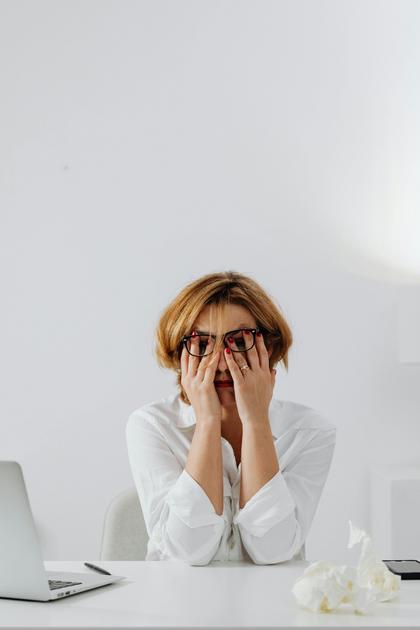Melatonin Use in Women: Stress Reduction or Sleep Disruption?
Are you a woman over 30 struggling with stress and sleep disruptions? You’re not alone. Many women face silent battles with insomnia, anxiety, and hormonal imbalances that can leave them feeling drained and restless. In this article, we dive deep into the use of melatonin, its effects on women, and whether it truly aids in stress reduction or causes more sleep issues. You’ll learn how to navigate this complex topic, empowering yourself towards a better night’s rest.
So, if you’re curious about practical solutions, discover how many women are finding relief without heavy medications.
Understanding Melatonin and Its Role in Sleep
Melatonin is a hormone that your body produces naturally. It plays a crucial role in regulating your sleep-wake cycle. When it gets dark, your brain produces more melatonin, signaling to your body that it’s time to sleep. Conversely, when the sun rises, melatonin levels drop, wakefulness ensues. For many women, especially those over 30, managing these levels can deeply affect sleep quality, mood, and overall health.
Women often experience fluctuations in hormone levels, particularly during life transitions such as pregnancy, postpartum, and menopause. These changes can disrupt the natural production of melatonin, leading to difficulties in falling asleep and maintaining restful sleep. Therefore, understanding melatonin can empower women to make informed decisions regarding their sleep patterns.
The Connection Between Stress and Sleep Quality
Stress can create a vicious cycle that impacts sleep. When you are stressed, your body releases cortisol, a hormone that can interfere with the production of melatonin. This connection is particularly evident in women who juggle multiple roles and responsibilities. The stress of work, family, and personal expectations can lead to anxiety, making it hard to unwind at night.
A high-stress lifestyle can lead to restless nights, creating a feedback loop where the lack of sleep further increases stress levels. For women navigating career pressures, family commitments, and societal expectations, this cycle can feel overwhelming. Recognizing this relationship is the first step towards improving sleep quality.
Common Sleep Disorders in Women Over 30
Sleep disorders prevalent among women over 30 include insomnia, sleep apnea, and restless leg syndrome. These issues can stem from hormonal changes, stress, or lifestyle factors.
- Insomnia: This condition makes it hard to fall asleep or stay asleep, often exacerbated by anxiety or hormonal imbalances.
- Sleep Apnea: Characterized by interrupted breathing during sleep, this disorder can cause extreme fatigue and is often undiagnosed.
- Restless Leg Syndrome: This condition results in an uncontrollable urge to move the legs, commonly worse at night, disrupting sleep.
These disorders not only affect sleep but also can have long-term impacts on health and well-being. Acknowledging these challenges is vital for seeking solutions.
How Melatonin Can Help or Hinder Sleep
While melatonin supplements are widely used to aid sleep, they can have different effects on different individuals. For some women, melatonin can effectively improve sleep onset and quality, especially for those struggling with insomnia.
However, not everyone responds positively to melatonin. In some cases, supplements may lead to grogginess or have an opposite effect, upsetting the body’s natural rhythm. Understanding what works for your body is crucial. Consulting a healthcare provider can offer personalized insight into whether melatonin may be beneficial for you.
Natural Alternatives to Melatonin for Better Sleep
If melatonin isn’t your ideal choice, various natural alternatives can support sleep without medication. Consider incorporating these practices into your nightly routine:
- Herbal Teas: Chamomile and lavender teas are known for their calming effects and can promote relaxation.
- Aromatherapy: Essential oils, such as lavender or cedarwood, can create a soothing atmosphere conducive to sleep.
- Mindfulness and Meditation: Practicing mindfulness can reduce stress, making it easier to drift off into restful sleep.
- Regular Sleep Schedule: Going to bed and waking up at the same time daily helps regulate your body’s internal clock.
Exploring these alternatives might just resonate better with your body’s unique rhythms.
The Impact of Hormonal Changes on Sleep Patterns
As women transition through their 30s and beyond, hormonal changes become increasingly significant. Conditions such as perimenopause can drastically alter sleep patterns due to fluctuating estrogen and progesterone levels. These hormones play a pivotal role in regulating sleep quality and mood.
Women may find themselves experiencing insomnia, night sweats, and mood swings that can keep them awake at night. Understanding how these changes influence sleep can empower women to seek solutions tailored to their specific needs.
Personal Stories: Women Share Their Sleep Journeys
Listening to the experiences of other women can often bring comfort. Many women have navigated similar struggles with sleep:
- Mary, 34: “After trying melatonin and feeling woozy the next day, I switched to a calming bedtime routine and found it much more effective for my sleep.”
- Lisa, 42: “I struggled with insomnia during perimenopause. Learning breathing techniques helped me find restfulness again.”
- Jessica, 36: “Herbal tea before bed made a world of difference; it lulled me to sleep without leaving me groggy in the morning.”
Sharing these journeys can help others feel less isolated. These women prove that through trial and change, there is always hope for better sleep.
Tips for Enhancing Sleep Hygiene
Improving sleep hygiene is pivotal for restful sleep. Here are a few tips:
- Create a Calm Environment: Ensure your bedroom is dark, quiet, and cool. Consider blackout curtains or a white noise machine.
- Limit Screen Time: Reduce exposure to screens at least an hour before bed to help your brain wind down.
- Establish a Relaxing Bedtime Routine: Engage in calming activities, such as reading or gentle stretching, before sleep.
Implementing these strategies can lead to significant improvements in your sleep quality.
Navigating Stress Reduction Techniques
Managing stress is crucial for improving sleep. Here are methods you might explore:
- Exercise Regularly: Physical activity can enhance mood and reduce stress, paving the way for better sleep.
- Deep Breathing Exercises: Simple breathing exercises can lower stress levels and prepare your mind for sleep.
- Journaling: Writing down thoughts and worries can clear your mind and assist in letting go of daily stress.
Not only can these practices help with stress, but they can also create a positive environment for sleep.
Finding Your Path to Restful Sleep and Wellness
Improving sleep doesn’t have to be a journey walked alone. Many women have found that becoming informed and proactive about their health leads to significant improvements.
Take the first step in your own journey. Click the link to see how many women are resolving their sleep struggles without heavy medications. Embrace the possibility of better sleep and overall wellness.
Remember, finding a solution might take time, and that is okay. Hope and health are attainable through mindful steps and the support of others.













